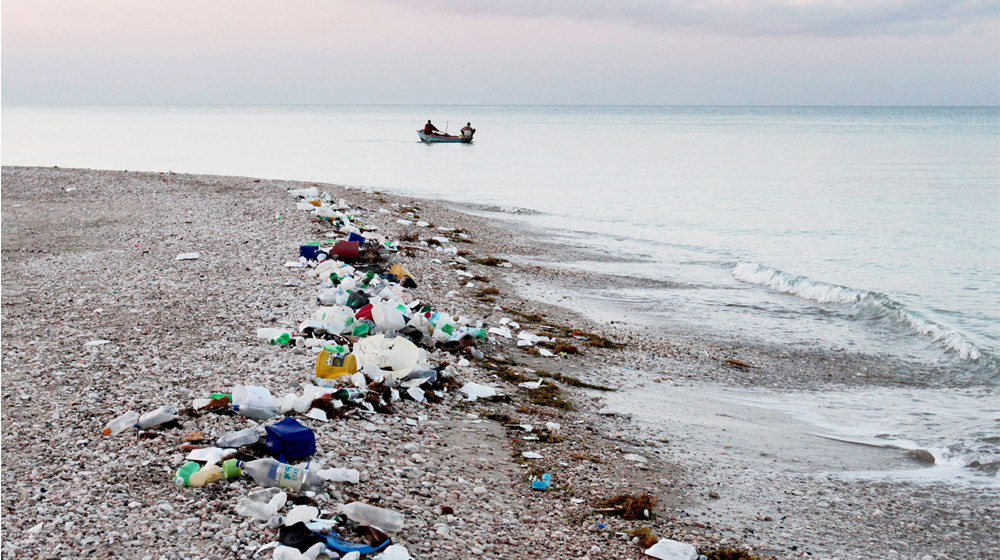Owing to the negligence in the management of plastic waste, there will be more plastic in the ocean than fish after the next three decades.
Experts at a three-day 5th International Conference on Energy, Environment, and Sustainable Development-2018 (EESD-2018) explained this while terming the mismanagement of plastic waste as the main hurdle in recycling and ultimately the main cause of pollution in the rivers and the oceans of the world.
They said that the plastic waste accumulating in the oceans is going to double up by 2025. Moreover, one of the speakers, regional manager of World Wide Fund for Nature-Pakistan (WWF-P) Dr. Babar Khan, said that Pakistan was the seventh among the most water-insecure countries.
He said that 18 million people did not have any access to clean drinkable water in Pakistan.
Need for A Circular Economy
The keynote speaker at the conference, Ms. Arvea Marieni, said that the world needs to chalk out globally obligatory initiatives to achieve a circular economy.
These initiatives should involve common rules and sanctions for effective management and recycling of plastic waste. Moreover, these initiatives should encourage and support the use of alternative biodegradable and compostable plastics.
“Fossil-based plastics are not biodegradable and stay in the environment for 450, up to 1,000 years. The plastic waste that ends up in the ocean every year is expected to double by 2025 and there would be more plastic in the ocean than fish by 2050.”
“Some 18 billion pounds of plastic waste flows into the oceans annually from coastal regions. Plastics are manufactured all over the world, but 50pc come from China and Asia,” said the keynote speaker.
ALSO READ
SBP Organises Workshop on Environmental & Sector Risk Management for Microfinancing Sector
She also explained the concept of circular economy, while terming it incumbent for present times. She said, “Circular economy is an economy that is restorative and regenerative by design and aims to keep products, components, and materials at their highest utility and value at all times, distinguishing between technical and biological cycles.”
“Life Cycle Analysis (LCA) is a useful tool to assess the potential social, economic and environmental consequences of using different materials,” she added.
She also apprised the participants about the efforts of producers of plastic bottles regarding management of plastic waste. She said that Coca-Cola, the largest global producer of plastic bottles, claimed to be committed to “collect and recycle the equivalent of” 100 percent of its packaging by 2030.
Moreover, other companies like PepsiCo, Unilever, and Amcor have promised to covert 100 percent of reusable, compostable, or recyclable packaging by 2025.
Tetra Pak, the biggest food packaging company, has pledged to recycle at least 90 billion packages of its mixed layer products.

























